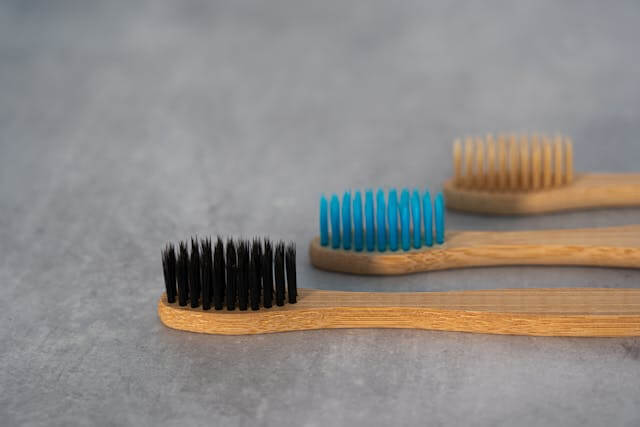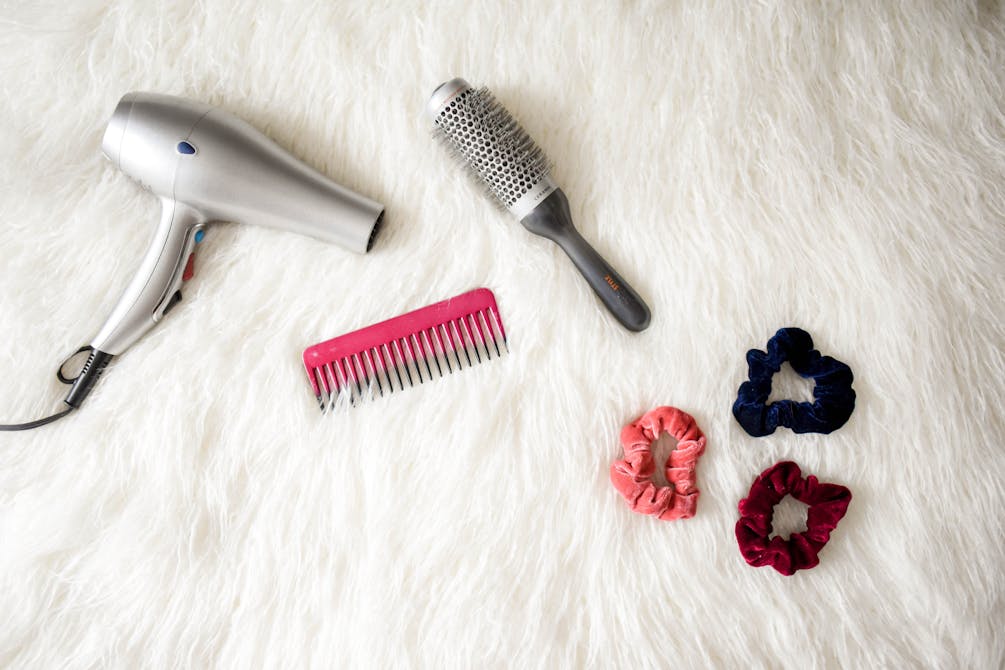Introduction
Understanding German vocabulary related to personal care and hygiene can help you communicate effectively in everyday situations. In this guide, you’ll find a curated list of common words, their English translations, and example sentences to practice using them in context.
Vocabulary List with English Translations
| German Word | English Translation |
|---|---|
| die Bürste | the brush |
| das Deo | the deodorant |
| das Duschgel | the shower gel |
| der Föhn | the hair dryer |
| das Handtuch | the towel |
| die Hautcreme | the skin cream |
| der Kamm | the comb |
| das Mundwasser | the mouthwash |
| der Nagelknipser | the nail clipper |
| die Nagelfeile | the nail file |
| das Rasiergel | the shaving gel |
| der Rasierer | the razor |
| die Schere | the scissors |
| die Seife | the soap |
| das Shampoo | the shampoo |
| die Sonnencreme | the sunscreen |
| die Zahnbürste | the toothbrush |
| die Zahnpasta | the toothpaste |

Example Sentences with English Translations
| German Word | German Sentence | English Translation |
|---|---|---|
| die Bürste | Ich benutze eine Bürste, um meine Haare zu kämmen. | I use a brush to comb my hair. |
| das Deo | Dein Deo riecht frisch und angenehm. | Your deodorant smells fresh and pleasant. |
| das Duschgel | Das Duschgel riecht nach Lavendel. | The shower gel smells like lavender. |
| der Föhn | Der Föhn ist kaputt. | The hair dryer is broken. |
| das Handtuch | Das Handtuch hängt am Haken. | The towel hangs on the hook. |
| die Hautcreme | Ich trage jeden Morgen Hautcreme auf. | I apply skin cream every morning. |
| der Kamm | Er hat einen Kamm in seiner Tasche. | He has a comb in his bag. |
| das Mundwasser | Spüle deinen Mund mit Mundwasser. | Rinse your mouth with mouthwash. |
| der Nagelknipser | Ein Nagelknipser ist im Set enthalten. | A nail clipper is included in the set. |
| die Nagelfeile | Tina benutzt eine Nagelfeile, um ihre Nägel zu glätten. | Tina uses a nail file to smooth her nails. |
| das Rasiergel | Das Rasiergel sorgt für eine glatte Rasur. | The shaving gel provides a smooth shave. |
| der Rasierer | Er benutzt einen elektrischen Rasierer. | He uses an electric razor. |
| die Schere | Ich habe die Schere in der Schublade gefunden. | I found the scissors in the drawer. |
| die Seife | Die Seife liegt auf dem Waschbecken. | The soap is on the sink. |
| das Shampoo | Dieses Shampoo macht die Haare glänzend. | This shampoo makes hair shiny. |
| die Sonnencreme | Vergiss nicht, Sonnencreme aufzutragen. | Don’t forget to apply sunscreen. |
| die Zahnbürste | Jede Zahnbürste hat eine andere Farbe. | Each toothbrush has a different color. |
| die Zahnpasta | Ich brauche neue Zahnpasta. | I need new toothpaste. |
Conclusion
Familiarizing yourself with these words and their context helps you navigate personal care discussions in German and boosts your overall fluency. Regular practice ensures you can recall these terms naturally in conversation, making it easier to interact in real-life situations.
FAQ
What’s the best way to learn German vocabulary?
Consistent practice, including using vocabulary lists, flashcards, and engaging in conversations, is key. Repetition and context help solidify new terms in memory.
More resources can be found here: German vocabulary blog articles overview.
How can I learn more German Words?
We created vocabulary quizzes that can help you to learn new vocabulary.
Check out exercises here: German vocabulary quizzes overview list.

